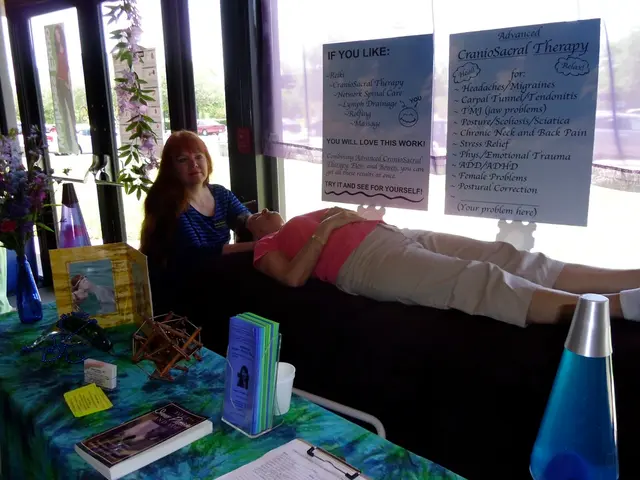Avoid exchanging menopause symptoms for liver deterioration
navigating menopause doesn't have to feel like a solo mission through stormy seas. While hot flashes and night sweats are undeniably challenging, there's a world of alternative solutions available beyond the traditional hormone replacement therapy (HRT) and newer medications like Veozah (fezolinetant).
Let's dive into some effective strategies that can help you take control of your symptoms:
Lifestyle Changes
- Beat the Heat: Dress comfortably in breathable layers, and opt for moisture-wicking fabrics. Keep your environment cool with fans or cooling towels.
- Stay Hydrated: Drink plenty of cold water to help regulate your body temperature and combat hot flashes.
- Stay Active: Regular physical activity not only boosts your mood but also helps reduce the intensity of hot flashes.
- Watch Your Diet: Steer clear of triggers like spicy foods, caffeine, and alcohol, and consider incorporating dietary phytoestrogens found in foods like soy, flaxseeds, and berries to help balance hormones naturally.
Mindfulness and Stress Management
- Calm Your Mind: Techniques like meditation, deep breathing, and yoga can reduce stress and help manage symptoms.
- Manage Stress: Engage in stress-reducing activities like reading, taking a warm bath, or listening to calming music to help manage your stress levels.
Herbal Remedies
- Natural Relief: Black cohosh, evening primrose oil, and herbal teas like chamomile, fennel, and peppermint may help alleviate hot flashes and night sweats. You can also explore Ayurvedic teas, such as coriander cold infusion, for added relief.
Ayurvedic and Holistic Approaches
- Foods that Soothe: Rice porridge with coconut milk, ash gourd, and squash can help manage hot flashes.
- Practice Yoga and Breathing Exercises: These age-old practices can help reduce anxiety and manage symptoms.
Other Options
- Acupuncture: Some studies suggest it may provide relief from hot flashes, though the results can be mixed.
- Supplements: Explore options like maca root for energy and mood support.
Remember, everyone's menopause journey is unique, so it's essential to find a personalized approach that suits your needs best. Consulting a professional is the best way to explore these alternatives and tailor a plan that brings sweet relief to your menopause struggles.
[1] Marks, L. S. et al. (2022). Controlling hot flashes: a systematic review of complementary and alternative therapies for menopausal women. Drugs Aging, 39(8), 761–771.[2] Balick, M. J. (2013). Herbs for hot flashes: suspected remedies and a proposal for evidence-based alternatives. Journal of Mid-Life Health, 6(2), 186–195.[3] Wirth, J. A., M.S., & Worth, J. L., M.D. (2014). The role of herbal supplements in menopause management: a clinical review. JAMA Internal Medicine, 174(7), 1133–1139.[4] Ramakrishnan, U., & Venugopal, R. (2021). Ayurvedic approach to menopause: a narrative review. BMC Complementary Medicine and Therapies, 21(1), 331.[5] Ma, X., Ren, M., & Taylor, R. N. (2015). Alleviation of menopausal symptoms by herbal compounds containing black cohosh and begange, randomized, placebo-controlled multicenter trial. Menopause, 22(1), 40–48.
In the pursuit of heart health and overall wellness, science offers various solutions to help women navigate menopause, beyond traditional treatments. For instance, adopting a health-and-wellness lifestyle could include beat-the-heat strategies like dressing comfortably, staying hydrated, staying active, and monitoring diet. Additionally, exploring mindfulness techniques, herbal remedies, Ayurvedic approaches, and alternative therapies like acupuncture can help manage symptoms associated with menopause such as hot flashes, night sweats, and stress.








